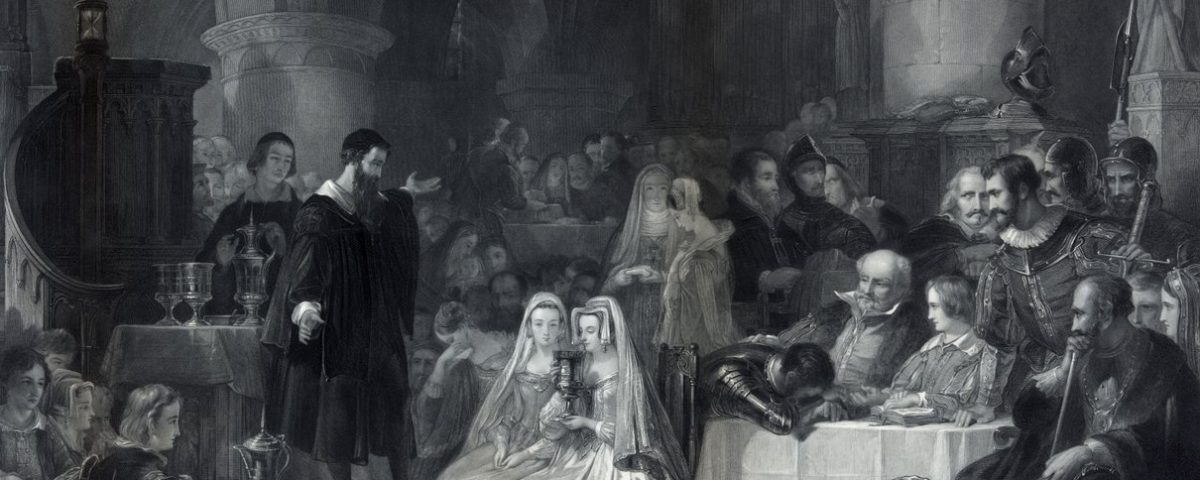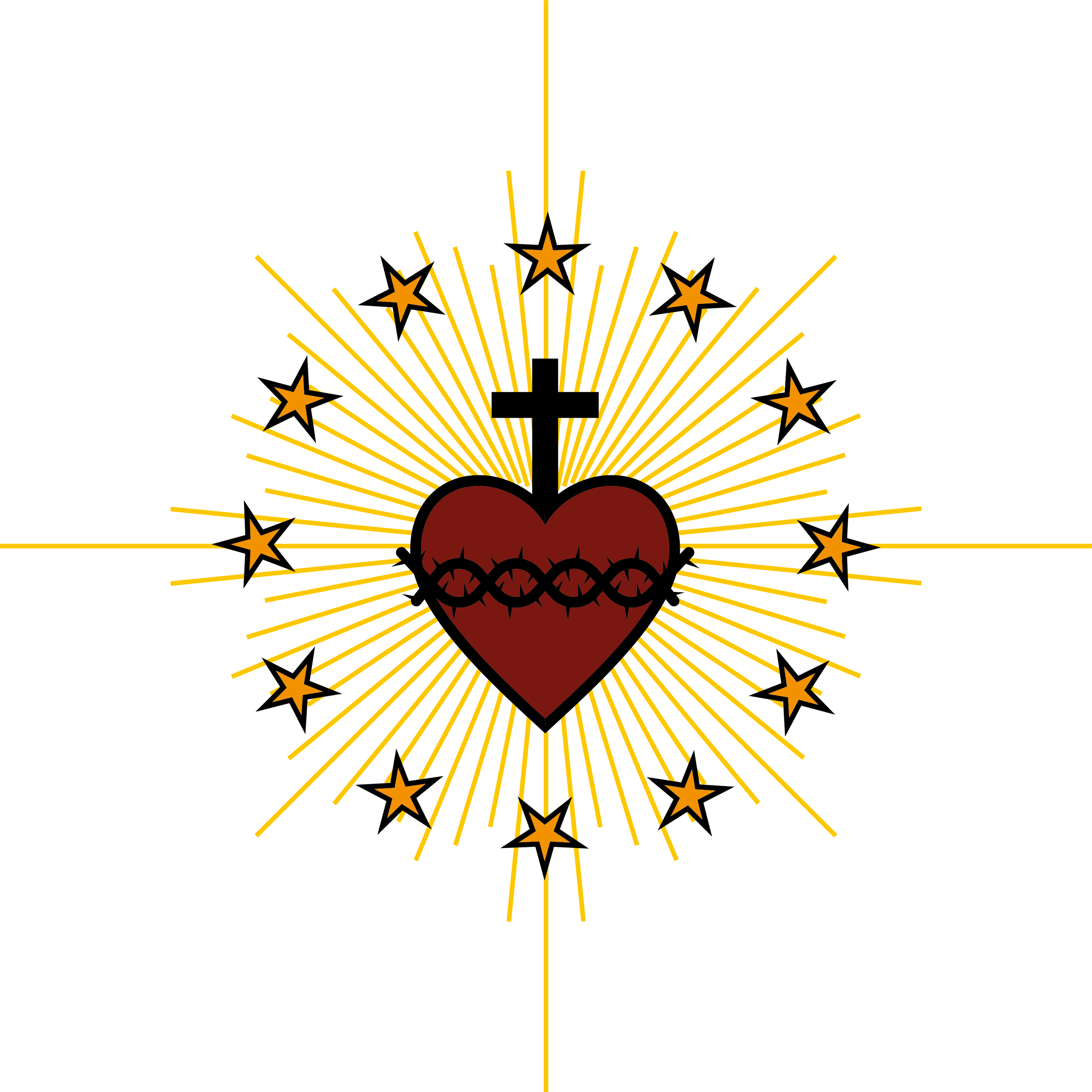Jorge Mario Monsalve Guaracao
The Philistines gathered together at Lehi, where there was a plot of ground full of lentils, and the men fled from the Philistines. But [Shammah] took his stand in the midst of the plot and defended it and struck down the Philistines, and the Lord worked a great victory.
2 Samuel 23:11-12
(German version of this article available here: https://www.gemeindenetzwerk.de/?p=21912)
Fleeing or fighting? This is not a simple question that should not be answered simply with one verse. It was pious for Lot to flee from destruction, but it was also righteous for Shammah to defend the field with all his might and defeat the invaders. Both were saving acts from the Lord. If Lot had stayed due to loyalty to Sodom, he would have erred by fanaticism; If Shammah had fled with the rest, he would have lapsed by cowardice. As always, we need the discernment that comes when we ‘watch and pray that [we] may not enter into temptation’. Whatever the case may be, the command to ‘contend for the faith once delivered to the saints’ is not optional. At Crossbearer, we are committed to defending this precious faith in the context of our Protestant National Churches, even if what is happening in our midst looks like a combination of both Sodom and Lehi. We take great inspiration to fight ardently as Shammah did, hoping that the Lord will find ‘ten righteous’ in our provinces of the Church catholic and save them, but we are also ready to move forward with a few faithful if the Lord deems it right to execute judgement.
The good news is that more than ten righteous have heard our call to action. We can fight as Shammah did. Our weapons are the Word and the Sacraments; our enemy is the father of lies; our field is the Churches of the Reformation. ‘If we in our own strength confide, our striving would be losing’—says the old hymn—’were not the right Man on our side, the Man of God’s own choosing’. He is with us today. The degree of recovery or decay of our visible provinces of the Church will depend on our resolve, on the degree of opposition of our leaders, and ultimately on the grace of God, but the Head of the Church remains seated at the right side of the Father, interceding for us and directing us in the midst of this struggle. It is helpful for us to remember the distinction between office and person: an official may be unworthy while his office remains legitimate. This is when the Church becomes a cross to bear. As long as our ecclesial provinces call on the Name of the Holy Trinity in their constitutions, as long as these constitutions declare the Holy Scriptures to be the ground for doctrine, and as long as the Confessions and Creeds that our forerunners fought for are nominally binding, this long we have a compelling reason to contend for the catholic faith from within.
Is this not an unequal yoke? Some ask. How could witnesses of the Resurrection partner with deniers of it? How could worshippers of the triune God be associated with those who confuse him with pagan gods? How can those who call the world to repentance work together with those who endorse sin of the world? But here we stand. We carry our cross and follow our Lord — despite the opposition of our society and of the confused Church. By committing to a core of values that, to the best of our conscience, stem from Scripture, we can find each other as a dispersed remnant, we can trust each other, we can pray with each other, we can edify one another, and we can partner in ministry. Not so with those who reject these values.
Brother or sister, if your parish has been taken over by a heretical leadership, we urge you, for your soul’s sake, to find a safe space to receive the Word and the Sacraments, whether in another parish from the national Church or if need be in a parish from a healthier denomination. For we must not partake of their heresy. We make a constant effort to find these healthy parishes and show them in our map. As our witness gains awareness, some fellow covenant members will react with curiosity, some will agree with us but will fear joining us, and some will target us for our convictions. But speak we must. We are now tasked with a double evangelism: to the lost world and to the confused Church. Hence our call for an ‘evangelical conquest’. Every new person that signs our manifesto means a conscience that has been bound to the Word of God and a conquest for the Kingdom of Heaven.
The dilemma of a visible separation is thorned with misjudgements, impatience, but also some historical victories. A schism, if done incorrectly, becomes a scar in the Body of Christ; if done properly, it is an amputation from gangrene. The place where the surgeon puts the scalpel matters. On the one hand, there is the error of an impatient Novatian or Donatist zeal that flees from error and misconduct, calling as many as possible to leave, instead of doing every attempt to settle the issue in a ‘synodal’ (i.e. collective) way. On the other hand, there is the victory of the Confessing Church that summoned a synod, condemned the ‘German [Nazi] Christians’, and provided a path for the continuity of the Church in Germany. The tragedy is when, in the midst of a heavily compromised hierarchy, the confessing remnant partly stays and partly leaves, leading to both a weaker counterweight in the original institution and a weaker new institution—and a weaker Body of Christ for that matter. This is what happened to all our historical Protestant denominations in the previous generation.
How shall we proceed in this generation? Should those who stayed judge those who left as schismatics while those who left judge those who stayed as heterodox? Is it sensible to use the limited strength that we have in a litigation over a divorce that happened decades ago? From our side, we hope that, by appearing publicly, we may become the ‘Dr Jekyll’ side of our Church that, unlike the blaspheming ‘Mr Hyde’, is able to reason with the rest of the Church catholic, especially our brothers and sisters that are subject to the same confessions. In fact, we don’t make a distinction by institution in Crossbearer, only by confession. Whilst keeping it as our mission to restore the national Churches, communicants from the independent Churches are part of our movement as well. We help these smaller institutions become more visible, and they help us in our common, public witness. We are still one in the Spirit. May it be agape what motivates those of us in the national Church to stay and pray, and be it also far from us to boast in our Church membership but only in the Cross of Christ.
There are winds of change. Joining the European fireline has been a privilege for us, Crossbearers. Our forerunners on the trenches have been fighting for decades: some strongly and steadily, but others with much tiredness. We are pleased to report ourselves to the generals on the field, bring our fresh enthusiasm, and contribute with our own incursions, such as our 95 theses, our videos, our social media posts, our visits to parishes, and our event in Wittenberg. More importantly, we’re fasting and praying. We’re also seeing the blessing of the Lord. Brother or sister, please pray for us. Pray that there be a new synod that may offer a definitive answer to the heresy of liberal Deism. This matter must be settled. Two hundred years of controversy is enough. See you, hopefully, on Reformation Day.




